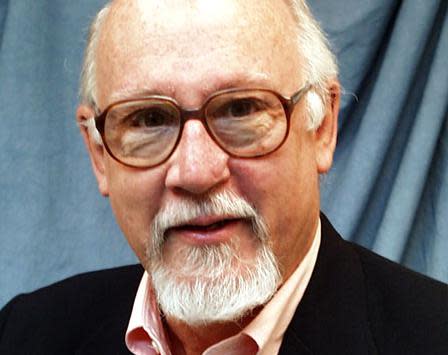Rowing across the Atlantic is not for the faint of heart | DON NOBLE
- Oops!Something went wrong.Please try again later.
- Oops!Something went wrong.Please try again later.
- Oops!Something went wrong.Please try again later.
James R. Hansen is professor emeritus of history from Auburn University, now living in Birmingham. He is, by profession, an academic but his subject matter, over 14 books, has been the most exciting imaginable, including a biography of Neil Armstrong, and a book about the space shuttle Challenger disaster.
This new book, “Completely Mad” is the day-by-day story of two very different men who, really by chance, were vying to be the first person to row across the Atlantic Ocean, alone.
More: Nick Carraway’s earlier life is imagined in prequel to “Gatsby” | DON NOBLE
In 1969, Tom McClean took off from Newfoundland, bound for Ireland, and John Fairfax in his little rowboat started at the Canary Islands, off the coast of Africa, and headed for Florida.
It was not exactly a race. Fairfax had started off well before McClean and was at sea a lot longer, 180 days vs. 70, but Fairfox landed in Hollywood Beach before McClean landed in Blacksod Bay, County Mayo, so Fairfax sort of “won.”
What the two men endured was very similar and is exhausting even to read about. They rowed for hours every day. Physically, they were all but destroyed. Their backs, their hands, were strained and blistered.
Both were wet a great deal of the time. High winds and waves, sometimes 50 feet high, threatened to sink their boat and in fact, their boats did capsize more than once. There was always the danger of being crushed to splinters by a ship that never saw them. For Fairfax especially, in warmer waters, there were sharks. He fought them, stabbed them and often ate shark.
McClean, in the North Atlantic, nearly lost his perpetually wet and frozen feet.
Both had planned well. Fairfax expected to be aided by the east-to-west trade winds and McClean by the Gulf Stream, but they both endured agonizing frustration when the winds blew the wrong way, sometimes for days, and 12 hours of rowing would get them nowhere. Sometimes, they lost ground, so to speak.
Their dried, prepackaged food was nutritious, but fantastically repetitious. Fairfax actually threw a lot of his overboard to lighten the boat’s load and caught and lived off fish.
Hansen gives a good deal of biographical material and the contrasts are striking. McClean was raised in an orphanage, served in a British Army paratrooper unit and then the even more elite SAS, an international strike force like the Navy SEALs.
Fairfax was a bit of a ne’er-do-well. He may have been a smuggler and pirate in the Caribbean.
Several times Fairfax went aboard freighters for hot showers, great food, drinks. Hansen is mildly scornful of these breaks from purity.
He admires McClean’s absolute integrity, refusing all offers to board ships he met at sea.
Afterward, McClean built and ran an outdoor adventure camp in Scotland; Fairfax became a professional gambler in Las Vegas. Both would row again, with Fairfax and his girlfriend Sylvia Cook rowing across the Pacific.
Hansen, an official chronicler for NASA, tells the reader that, sadly, in that summer of 1969, both achievements were overshadowed by the moon landing. But Hansen believes these solo adventures, in little wooden boats, were more dangerous and terrifying than space flight where thousands of engineers, scientists and technicians had developed the craft and were standing by to help.
To row across the ocean alone, you would have to be completely mad.

Don Noble’s newest book is Alabama Noir, a collection of original stories by Winston Groom, Ace Atkins, Carolyn Haines, Brad Watson, and eleven other Alabama authors.
“Completely Mad: Tom McClean, John Fairfax, and the Epic Race to Row Solo Across the Atlantic”
Author: James R. Hansen
Publisher: Pegasus Books
Pages: 384
Price: $28.95 (Hardcover)
This article originally appeared on The Tuscaloosa News: Rowing across the Atlantic is not for the faint of heart | DON NOBLE
